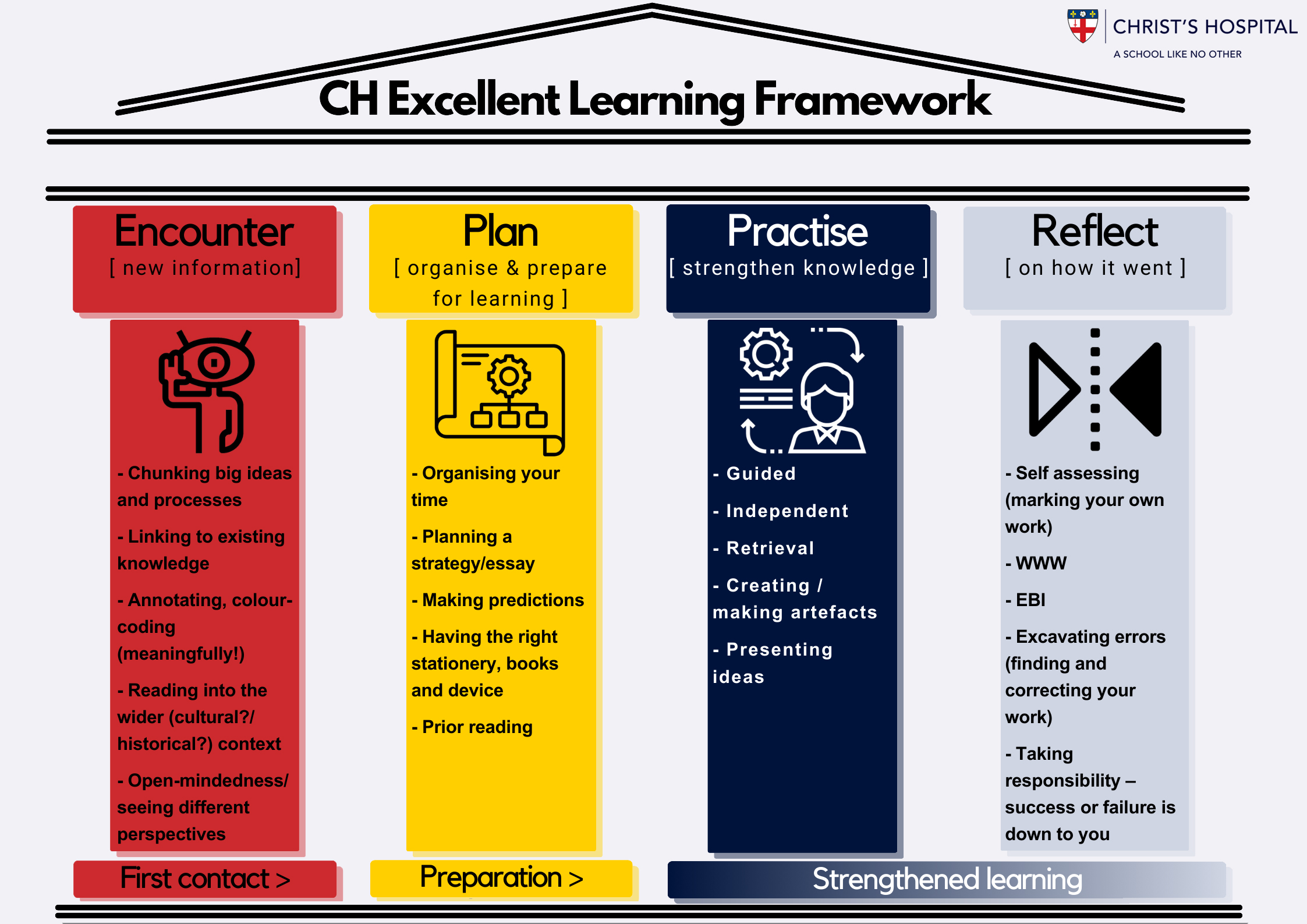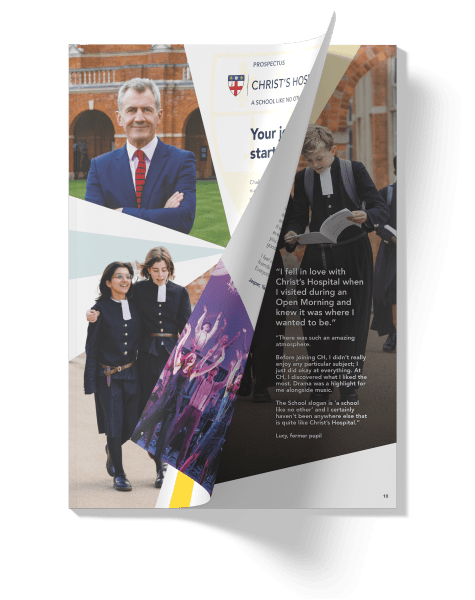-
About CH
Overview
School Life
- Admissions
- Support Us
- Facilities to Hire
- Useful Links
- Contact us
Curriculum
Curriculum
Christ’s Hospital prides itself on delivering a vibrant curriculum that has both challenge and opportunity at its heart. The CH curriculum is made up of three interwoven parts: a stimulating academic curriculum which covers everything inside the classroom; an extensive broader curriculum which encapsulates everything outside the classroom; and a pastoral curriculum which has deep roots in the boarding house system complemented by a dynamic learning for life programme which teaches personal development. All three complement and support the progress of our students at every stage.
Teaching and Learning
At Christ’s Hospital we have two key principles at the heart of our teaching and learning – for students to love learning for life and for them to get the best qualifications they can.
To this end we have created a unique Excellent Learning Framework to help guide them. This combines the expertise of teachers with key insights from cognitive science into a practical toolkit to help them with their studies in all subjects.
Following consultation with teachers and students and a review of key literature on cognitive science, the Excellent Learning Framework was formulated. The goal is to combine teacher expertise and insights from scientific findings on learning. It is also to provide students with actionable insights into how they can learn better.

The first element of the structure are the pillars. These are the key stages in learning and can be seen as a learning cycle. Encounter is when new material is first to be learnt, Plan is the preparation both of equipment and schedules that should happen before learning, Practise (an imperative!) is the key part of embedding learning and Reflect on previous learning is what must happen to improve the next stage of learning.
Within each pillar, certain specific techniques are recommended to learners. These are not exhaustive. They are also more or less applicable depending on the subject matter / domain being studied. Examples include ‘chunking’ during Encounter – to break new material up into smaller pieces – and ‘spaced’ or ‘distributed’ Practice – to spread ‘little and often’ throughout a period of learning to make it more effective.
Through assemblies, departmental courses of work and student surveys we are rolling this out to students and look forward to embedding its impact and reviewing it regularly as time and teaching and learning evolve into the future.
